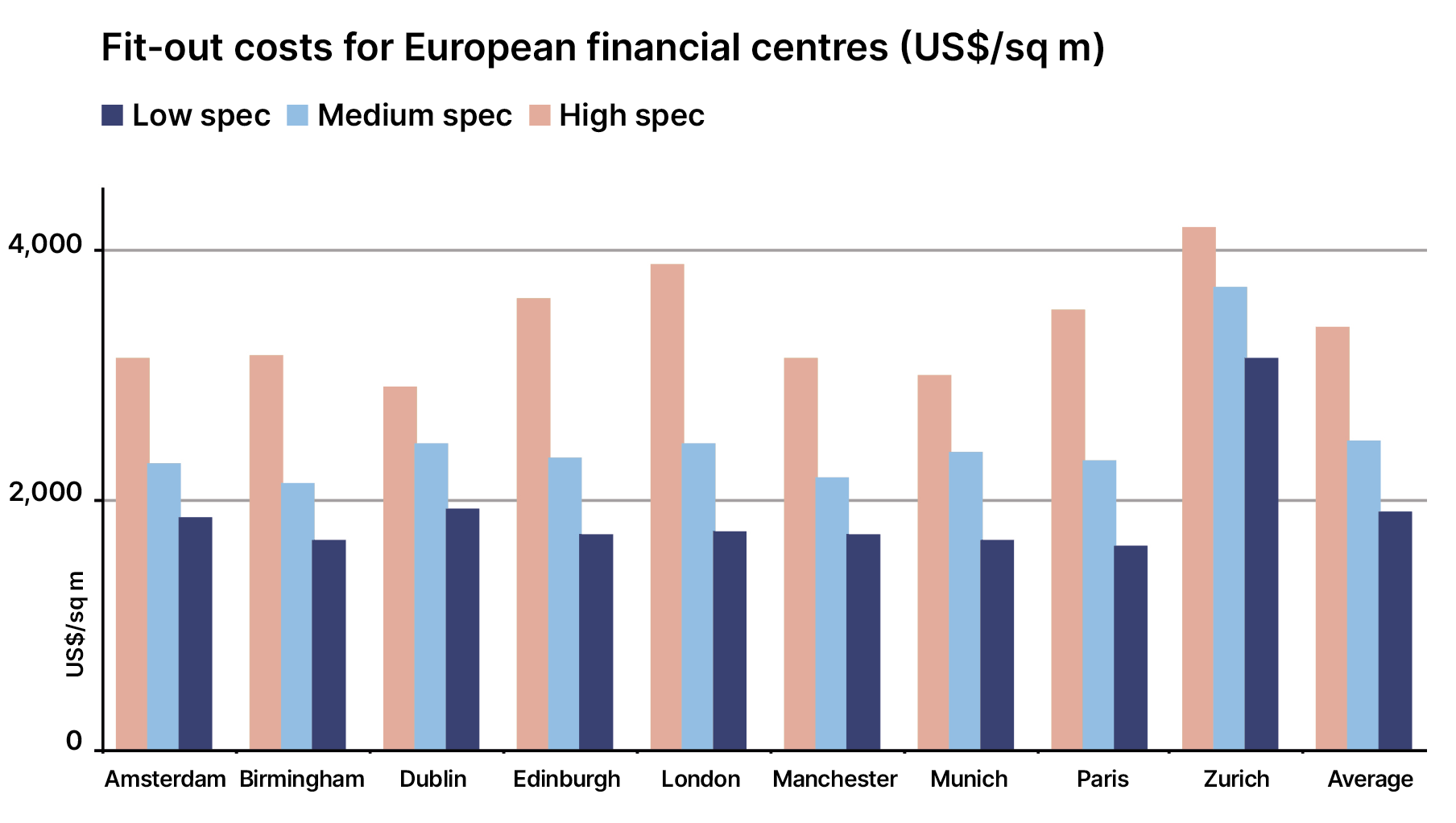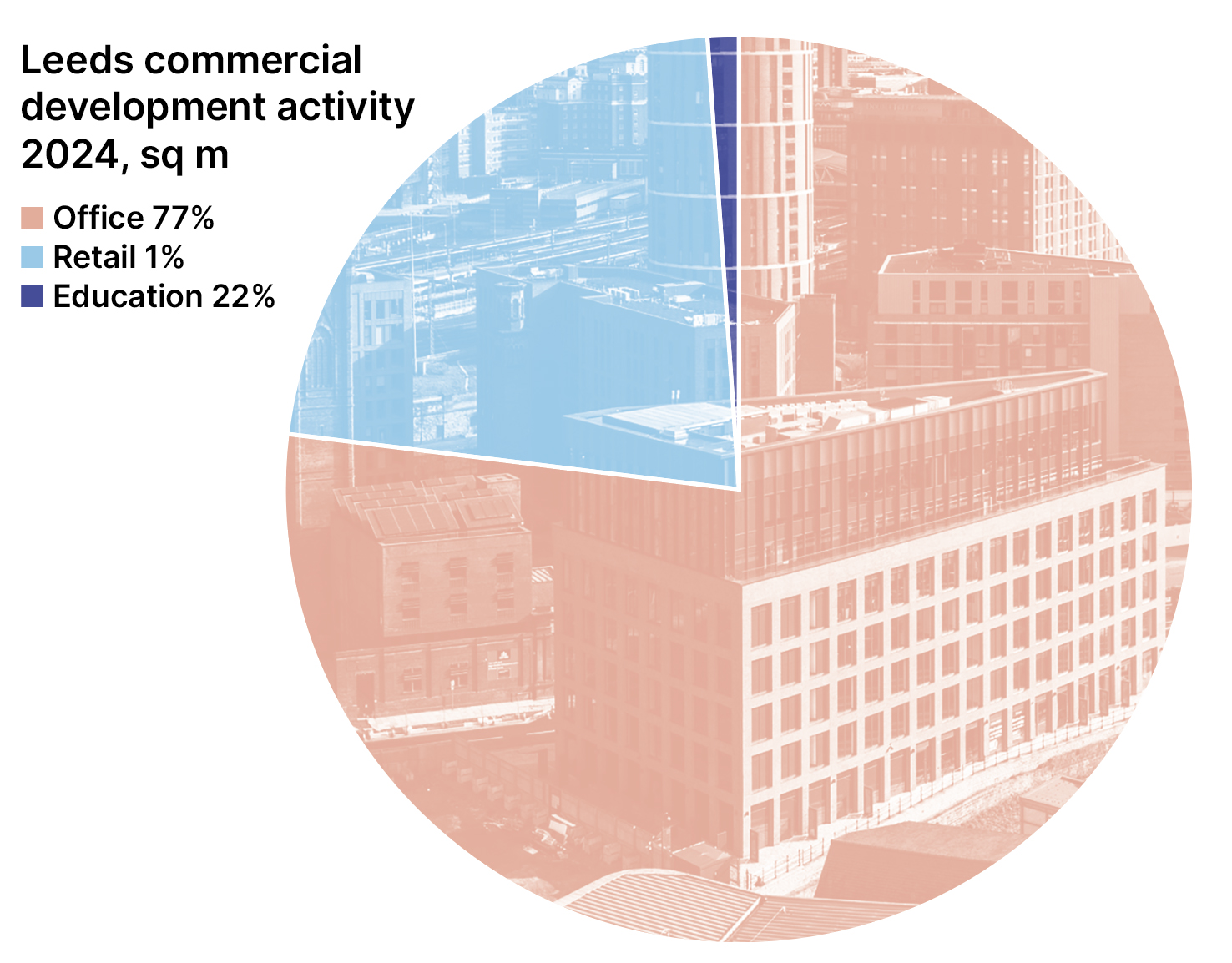
A turbulent economic climate and changing working patterns are not slowing down fit-out demand, says Nitesh Patel.
It has been three years since the Covid-19 lockdown measures were relaxed in Britain and, despite a general return to business as usual, hybrid working continues to have a lasting legacy.
In this context, employers are increasingly looking at ways to improve the workplace environment by listening to their employees’ views when investing in new office layouts. Without enticing workers back into the office, businesses lose productivity benefits from collaboration and could be left with costly stranded assets.
Despite an unsettled economic environment, high labour and material costs, shifting working patterns and increased building regulations, investment in both the refit of existing space and fit out of new space has continued to remain strong.
Making the right choices relies on having good quality data to underpin investment decisions. The latest Turner & Townsend Global occupier fit-out report provides this with a granular dataset that can guide companies looking to maximise value for money.

Fit-out costs compared
The report also compares average fit-out costs for cities in Britain and across the world. Zurich, London and Edinburgh are the most expensive cities in Europe on an average cost per square metre basis – largely driven by higher labour costs in these markets.
London commands an 18% premium over UK cities in the survey for high-specification
briefs with an average cost of US$3,885.5/sq m (£3110.49). Despite Brexit, London is still a leading global financial centre and both the City and Canary Wharf continue to attract investment. By contrast, low specification fit-out costs are similar across UK cities, possibly reflecting the many regeneration initiatives in cities such as Manchester, Birmingham and now in Leeds.
There are several factors underpinning current fit-out demand. With uncertainty over working patterns and in-person attendance, occupiers are looking for flexibility in their leases, but also in their space. Businesses and their employees want robust workspaces that can foster productivity and social collaboration.
Many companies are balancing this against the need to meet their environmental, social and governance objectives – and will need a fit out that matches those needs. We’re increasingly seeing how the granularity and reliability of data are helping occupiers manage these competing demands.
The case of Leeds
One city that has seen increased fit-out activity in recent years is Leeds, which will be hosting the 2024 UK Real Estate Investment and Infrastructure Forum this month. With a host of financial, legal and professional services firms, Leeds is an attractive proposition for developers and investors.
According to the Deloitte Leeds Crane Survey 2024, there was a sixfold increase in floorspace delivered, from 9,077 sq m in 2022 to 64,939 sq m in 2023, of which 35,833 sq m was delivered across two schemes in the South Bank area. New office space accounted for over three-quarters of new development in 2023.

In 2023, occupier demand was robust, with a take-up rate that was 10% above the five-year annual average. Fifty-eight per cent of the take-up in 2023 was by financial and professional services firms. However, the level of Grade A supply at the end of 2023 was the lowest since 2019, illustrating the ongoing supply squeeze in the office market. If Leeds wants to attract the right developers, it will need to invest in Grade A office space.
The investment zone status given to West Yorkshire by the government in November 2023 is expected to boost further investment in Leeds, Bradford and Huddersfield. However, if clients want to take advantage of this growing hub, they will need to have a firm grasp of fit out’s cost drivers as well as the relevant data. By doing so, businesses will be able to maximise their investments and drive productivity in their offices.
Nitesh Patel is a lead economist, UK, at Turner & Townsend.










